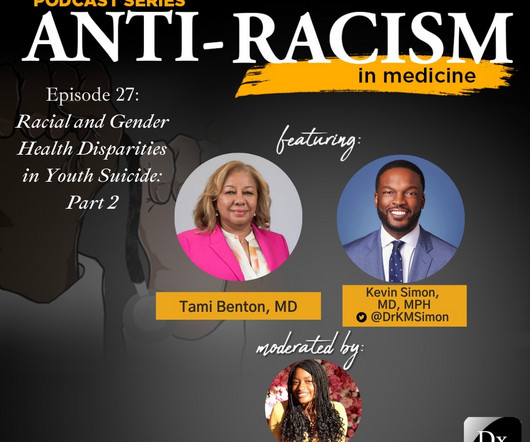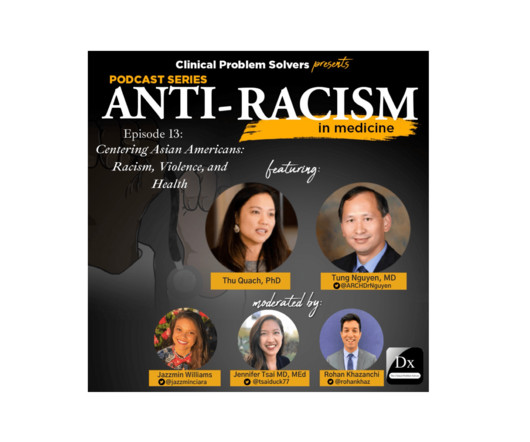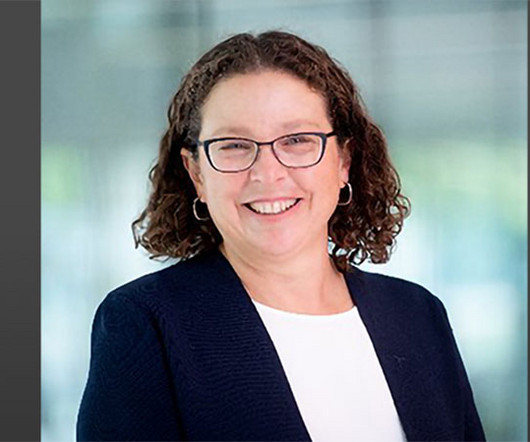Episode 392: Antiracism in Medicine – Episode 27 – Racial and Gender Health Disparities in Youth Suicide: Part 2
The Clinical Problem Solvers
APRIL 24, 2025
They explore the impact of racism, trauma, and inequities in care, while emphasizing the need for culturally grounded, community-based prevention. The episode highlights the importance of policy advocacy, culturally responsive therapy, and practicing cultural humility in mental health care. Dr. Kevin M.












Let's personalize your content